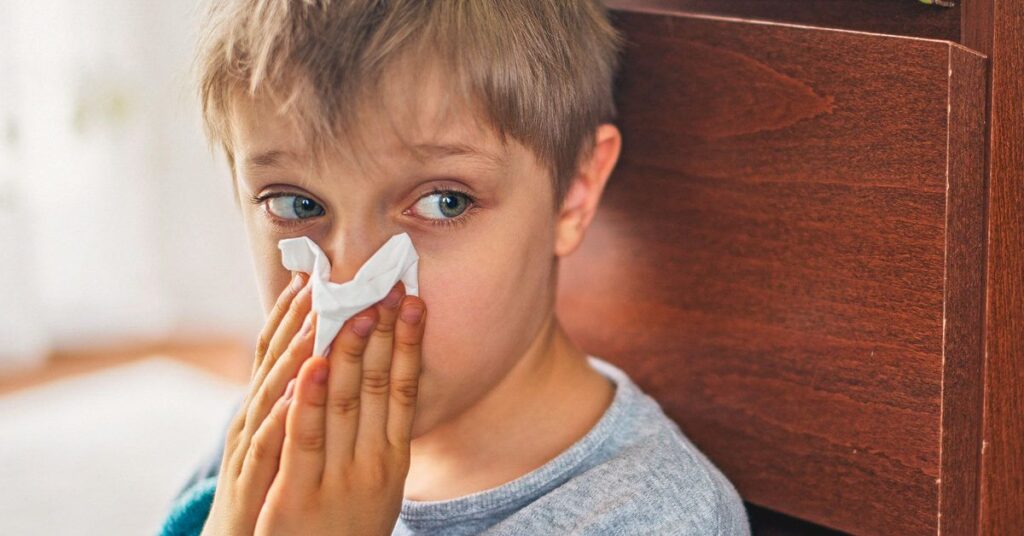Some people suggest that picking your nose and eating boogers boosts the immune system. However, no scientific evidence supports this. In fact, eating it may cause negative health effects.
Mucus, also known as boogers, traps dust and germs before they reach your lungs. Nose picking is by no means a new phenomenon. In the 1970s, ancient Egyptian scrolls were discovered that discussed paying King Tutankhamen’s personal nose picker.
Nose picking and eating boogers, also known as mucophagy, has traditionally been met with looks of disgust. However, some scientific experts suggest otherwise. Here’s what you should know about eating boogers.
There isn’t a significant amount of research surrounding eating boogers because most people won’t agree to participate in studies. However, Scott Napper, an associate professor of biochemistry at the University of Saskatchewan, in a humorous attempt to engage his students, suggests that eating boogers may actually have some helpful effects. According to an interview with CTV-News Saskatoon, Napper says that eating boogers exposes the body to mucus that has trapped bacteria. In theory, the body could build up an immunity to the bacteria in this mucus and then be more equipped to fight against future illness-causing bacteria.
Sometimes, picking the nose (but not necessarily eating boogers) may seem like a more convenient way to clean out the nose versus using a tissue. If this is the case, you may wish to do so in private and wash your hands after to avoid the spread of potential infectious diseases.
A significant body of research doesn’t exist to support or name the risks of eating boogers. However, there is a study that found those who picked their nose were more likely to carry the bacteria Staphylococcus aureus than those who didn’t pick their noses.
Some chronic nose pickers may also experience nosebleeds as well if they pick so much they affect the tissues inside their nose.
Nose picking in children
Children are especially prone to nose picking since they may not have learned alternative methods, such as blowing their nose. They also tend not to be bothered by things that many adults find socially unacceptable or gross.
Picking their nose and eating the boogers, then touching other household objects and other people’s skin could potentially increase the risks for spreading viruses and bacteria, such as the flu or a common cold. Also, nose picking can cause sores in a child’s nose, which could in turn lead to further nose picking.
Nose picking in adults
While many people associate nose picking with childhood, adults eat their boogers too. In adulthood, several contributing factors can lead to this behavior.
First, a habit can become so normal to a person they may not even realize they’re picking their nose and eating their boogers. Second, the nose picking may be a way of relieving anxiety. In some people, compulsive nose picking (rhinotillexomania) may be a form of obsessive compulsive disorder.
When eating boogers is a habit, it can be difficult to stop, but it’s not impossible. Try these tips for beating the habit:
Identify underlying causes. If you always seem to have an itchy or runny nose, seasonal allergies could be to blame. Taking over-the-counter medications, such as loratadine (Claritin) or cetirizine (Zyrtec) may help to reduce the incidence of runny nose and congestion, which cuts back on the number of boogers.Try using saline nose drops or cool-air humidifiers. These keep your nasal passages from drying out (and boogers becoming hardened), which can also reduce the urge.Use a memory device to help reduce subconscious nose picking. An example can be wearing a bandage around a finger that you usually use to pick your nose. It may disrupt your thoughts when you go to pick your nose.Make tissues more easily available by keeping them in your pocket, bag, and desk drawer. You may be more likely to use them to blow your nose instead of picking it.Try to find an alternative stress reliever. Examples could include deep breathing, listening to or singing a favorite song, or another activity you find soothing. This can replace a nose picking habit with a healthier, stress-relieving habit.
If you find that you pick your nose to the extent where you have frequent nosebleeds or even infections, you may need to see a doctor. Sometimes a person can benefit from therapy to retrain their behaviors or even medications to reduce compulsive thoughts and behaviors.
Mucus, or boogers, is a naturally protective part of your body. By catching dust, bacteria, viruses, and dirt before they get into the respiratory tract, mucus in the nose can be protective.
However, there isn’t a lot of research to support that eating that mucus is beneficial to the body — and it could potentially lead to increased infections by introducing further germs or passing them to others accidentally.
What people do know is that eating boogers isn’t usually considered a socially acceptable behavior. If you pick your boogers and can’t find yourself able to quit, talking to a doctor may be able to help you kick the habit for good.

